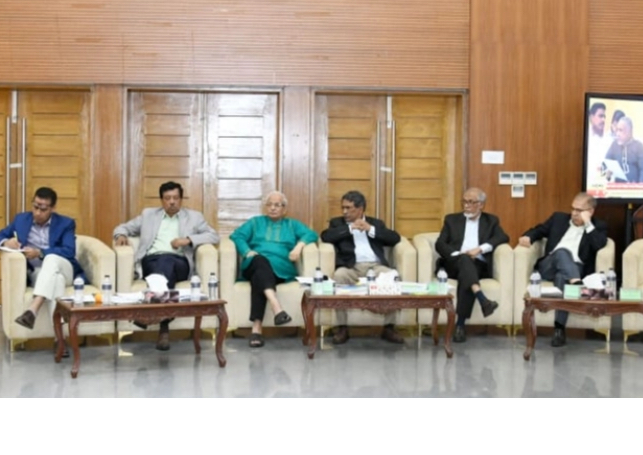

The National Consensus Commission on Wednesday presented a revised proposal regarding the formation of an authority to oversee recruitment for certain key positions in constitutional and statutory bodies.
According to the changed proposal, the name of the authority will be “Appointment Committee for Constitutional and Statutory Institutions” instead of the National Constitutional Council (NCC). And the President and the Chief Justice would not be the committee members unlike NCC, reports UNB.
The seven-member appointment committee would include the Prime Minister, the opposition leader, Speakers of the Lower and Upper Houses, a representative nominated by the president, an Appellate Division justice nominated by the Chief Justice and a person from other opposition parties excluding the main opposition. The Lower House Speaker would preside over its meetings.
Commission’s Vice Chairman Prof Ali Riaz on Wednesday morning placed the revised proposal at the outset of the sixth day of the second-round talks of the Consensus Commission in the capital. The discussion began around 11am at the Foreign Service Academy.
Jamaat Nayeb-e-Ameer Syed Abdullah Muhammad Taher said all the political parties except BNP supported this new proposal.
“All but one party agreed with the new proposal. Bangladesh Jamaat-e-Islami completely agrees with this proposal,” he said while briefing reporters during the lunch break of the day’s talks.
In reply to a question, the Jamaat leader said the one party is Bangladesh Nationalist Party (BNP).
The Consensus Commission earlier proposed the formation of a nine-member national constitution council (NCC) to oversee the appointments to the key posts of the constitutional and statutory bodies.
The previous proposal said the NCC members would be the President, the Prime Minister, the Chief Justice, the Opposition Leader, two speakers of the lower and upper houses, two deputy speakers nominated by the opposition for the lower and the upper houses and another person from other oppositions other than the main opposition.
But BNP opposed the proposal arguing that such a council would have no accountability.
“We as a democratic party can’t support any institution that has authority, power, and functions but no accountability. Creating a separate organ with such functions will lead to an imbalanced situation,” said BNP Standing Committee member Salahuddin Ahmed after coming out from the reform talks on June 18 last.
In this context, the Consensus Commission came up with the revised proposal, changing its name and structure.
The functions and authority of the proposed committee would cover appointments of key constitutional figures, including the Chief Election Commissioner and election commissioners, Public Service Commission, Anti-Corruption Commission, the National Human Rights Commission and the proposed Local Government Commission.
While talking to reporters during the lunch break, AB Party Chairman Mujibur Rahman Manju expressed dismay over differences regarding the revised proposal for formation of the appointment committee to oversee the appointments for the constitutional and statutory bodies.
“If this proposal can’t be accepted (finally), nothing can be achieved,” he said, adding that most of the parties supported it.
Besides, the consensus commission brought changes in another proposal regarding the fundamental principles of the state.
The commission earlier suggested 'equality, human dignity, social justice and democracy' as the fundamental principles of the state.
In the new proposal, religious freedom and harmony has been included as the fundamental principles.
The political parties could not reach a consensus over this revised proposal as well when it was raised in Wednesday's discussion.


 For all latest news, follow The Financial Express Google News channel.
For all latest news, follow The Financial Express Google News channel.